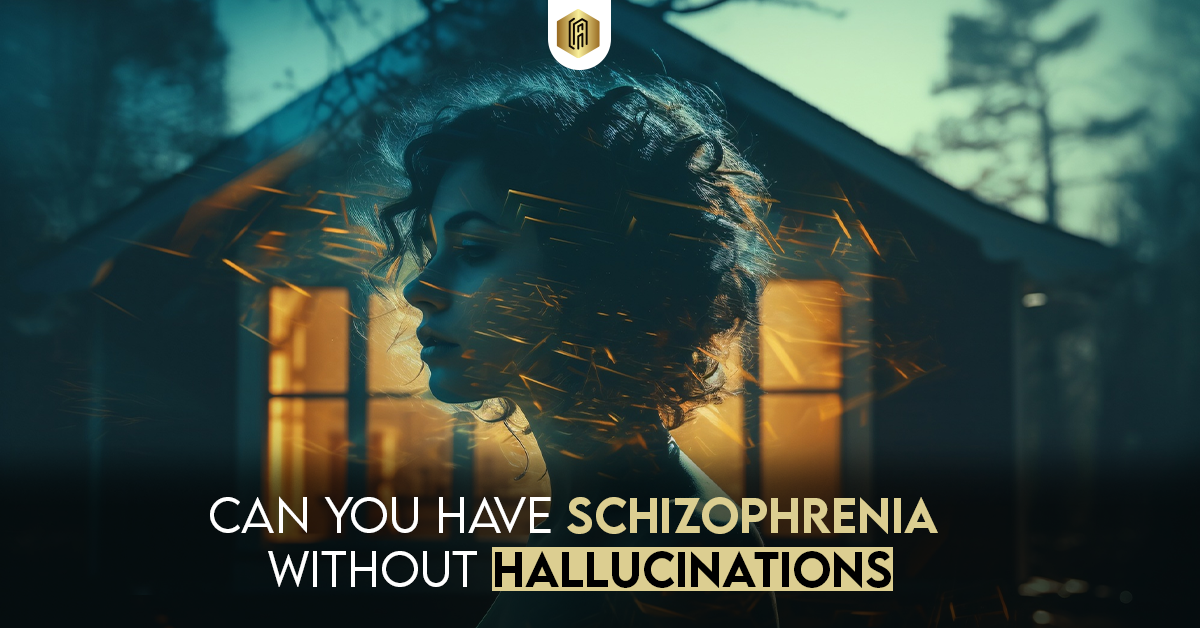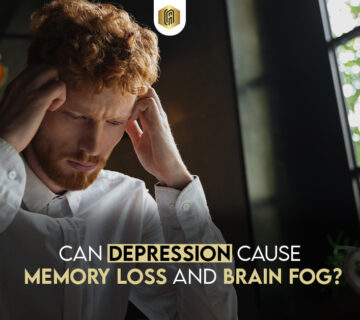People generally associate schizophrenia with experiences of imaginary voices and nonexistent visual events. But is this real? Can you have schizophrenia without hallucinations?
If someone you care about has schizophrenia, they need the right care and medication. Ascension Psychiatric Services listens to and supports you. We create a plan to help them live a healthier life. Reach out for additional details.
Let’s go through that. We will explain how schizophrenia expresses itself in social settings and whether hallucinations always play a role in schizophrenia. Our explanation will be basic so you can easily comprehend the information.
What Is Schizophrenia?
Schizophrenia continues across several years as a type of persistent mental illness. It adjusts the way a person reflects, emotions, and engages.
These individuals might appear disconnected from the truth. It can be a challenge and a fright for them and others.
Schizophrenia will often include:
- Hallucinations (perceiving things that aren’t present)
- Delusions (intense false beliefs)
- Disorganized thoughts
- Loss of motivation and emotions
- Isolation
However, not everyone with schizophrenia experiences all of such symptoms.
Can You Have Schizophrenia Without Hallucinations?
You can have schizophrenia without hallucinations. Hallucinations- like those voices hearing, which are not real, are common to schizophrenia, but not in every case.
Certain patients with schizophrenia don’t exhibit this symptom in their condition. The person reveals a range of symptoms according to their identity, some imagine vividly, and others may have no experience.
Even without hallucinations, a person can still face other problems. These issues can make life very complicated. Schizophrenia is shown through many signs, and not everyone has the same signs.
Types of Schizophrenia Symptoms
Schizophrenia signs are classified into three types that appear regularly:
-
Positive Symptoms
These are symptoms “added” to a person’s behavior. They include:
- Hallucinations (like hallucination auditive, or hearing voices)
- Delusions
- Disorganized thoughts
-
Negative Symptoms
These are things that are “taken away” from a person’s normal experience. They include:
- Lack of motivation
- Reduced emotional expression
- Social withdrawal
- Trouble speaking or engaging
-
Cognitive Symptoms
These involve problems with thinking or memory, such as:
- Trouble focusing
- Forgetfulness
- Difficulty understanding information
Someone can have cognitive and negative symptoms without ever having hallucinations or delusions.
Do All Schizophrenics Hear Voices?
It is commonly misjudged that anyone with schizophrenia tunes into voices. It is not true. Not all Schizophrenics hear voices.
Hearing voices, also known as hallucination auditive, is one possible symptom of the condition. Others may have incoherence, whilst some entertain intense delusions that one is really after harming them.
Although hearing voices remains a common symptom, it is not a requirement to bear a diagnosis of schizophrenia.
Can You Have Psychosis Without Hallucinations?
Psychosis is essentially a matter of confusion between the real and the unreal. A person may ‘imagine’ internal sensory events that are not there.
But then again, not everyone diagnosed with psychosis experiences hallucinations. Few people may think thoughts that aren’t accurate. For example, they might think someone is watching them or trying to control their thoughts. These are called delusions.
Psychosis can occur without hallucinations. That’s why doctors conduct thorough examinations of other signs, such as the existence of bizarre beliefs, to arrive at the correct diagnosis for psychosis.
Religious Schizophrenia Symptoms
Some people with schizophrenia may reveal religious characteristics. This means they might:
- Belief that they are a god or chosen one
- Think they can talk to angels or spirits
- Feel they are being punished by a higher power
These are called religious schizophrenia symptoms. Sometimes, these ideas come with hallucinations. But not always.
A person can have these beliefs without seeing or hearing things.
Diagnosing the Condition of Schizophrenia
Mental health experts diagnose schizophrenia like detectives. They use interviews, observations, and tests to solve the puzzle.
Following DSM-5 guidelines, they allow for some nuance, hallucinations aren’t always needed. To identify someone, they must exhibit at least two crucial signs.
These may consist of hallucinations, muddled speech, or unfavorable traits. This mix of signs must last one month to uncover the truth about the mind.
Living With Schizophrenia Without Hallucinations
Patients who have schizophrenia without hallucinations suffer from specific challenges that differentiate them from those who receive auditory or visual experiences. For example:
- Their condition may go unnoticed longer.
- They may struggle more with motivation or emotional expression.
- They may feel misunderstood since their symptoms are less “visible.”
But with the right support, therapy, and tools, it is completely possible to live a full and meaningful life. Many people go on to have jobs, families, hobbies, and strong relationships.
Treatment for Schizophrenia Without Hallucinations
The treatment path stays the same, with or without hallucinations. It includes:
-
Medication Magic
Antipsychotics work well, even when hallucinations are not present. They help balance moods and clarify thoughts.
-
Therapeutic Touchstones
- Cognitive Behavioral Therapy (CBT) enhances clarity and builds coping resources.
- Family members can support one another through family therapy.
- Psychoeducation teaches and increases understanding of the condition.
-
Lifestyle and Support Systems
- Keep regular schedules of activity.
- Eat healthy food and exercise.
- Join support groups.
- Steer clear of drugs and alcohol.
Even among patients with schizophrenia without hallucinations, treatment could still prove to be imperative in relieving symptoms and improving one’s quality of life.
Conclusion
So, back to the big question: Can you have schizophrenia without hallucinations? The solution is a yes, which happens more frequently than people think.
A person who lacks auditory or visual perceptions isn’t inherently facing schizophrenia.
Every person has a different face of mental illness. One must go beyond the stereotypes and recognize the many faces of this complex disorder.
If you or someone you know is experiencing signs such as:
- Emotional directness
- Social withdrawal
- Confused thinking
- Lack of initiative
Do not wait for “typical” symptoms such as hallucinations to show up before reaching out to a mental health professional. Early intervention can make all the difference.
FAQs
Can you be schizophrenic without hallucinations?
Absolutely. It can show up in many ways, including:
- Quietness
- Confusion
- Odd behaviors
It can happen even with no hallucinations at all.
Do all schizophrenics hallucinate?
No. Most have negative and cognitive deficits, without hallucinations.






No comment